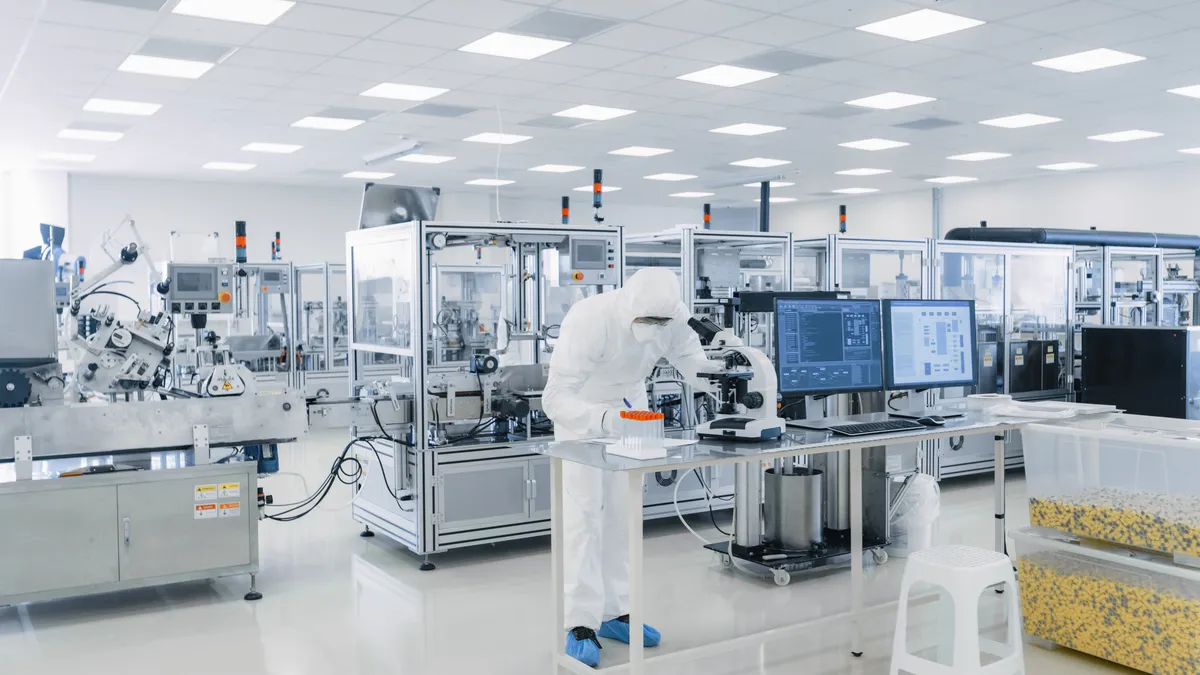For the families of children with rare and ultra-rare disease, the search for therapies is urgent. Of the approximately 7,000 rare diseases, 95% have no treatment, which has led many parents to invest time and energy in finding research that will help their children, only to confront a myriad of challenges.
Dr. Emil Kakkis, founder, president and CEO of Ultragenyx, understands these families’ frustration and desperation. When Kakkis, whose background is in academia, started out in the biotech sector he ran into a problem encountered by many outsiders venturing into the space: carrying out biotech production without concrete industry experience.
At the time, Kakkis was at the Harbor-UCLA Medical Center trying to develop a GMP-quality protein enzyme replacement therapy for the rare disorder mucopolysaccharidosis type I (MPS I).
“I had to try to figure out how to assemble all the procedures and rules required to make a product,” he says. “How do you analyze, test and release it in a way that would verify it as a product appropriate for patients? The challenge we faced was understanding the rules and what is required to raise capital, develop time-and cost-efficient clinical stage manufacturing capabilities and get a product to sufficient GMP quality to get it into a clinical trial.
“We spent a year with about a dozen people struggling and working hard to get there. In the end we did get there, but for families of children with rare diseases who have raised money and are trying to pull the technology together, the whole process is untenable."
Ultimately, Kakkis says he was able to learn the ropes after hiring a team of experienced pros. But for patients, caregivers and advocates in the rare disease space, he knew more education was needed.
Addressing development barriers
According to Kakkis, much of what occurs in biotech is learned from experience and there is no clear and precise information on how to make a GMP-quality biotech product. Rather, there is an expectation that you have learned all of this from working in the industry for many years.
With the goal of sharing his newly acquired knowledge with others working behind the scenes of drug development, Ultragenyx helped launch RARE Entrepreneur Bootcamp, a series of courses designed for “patients and advocates who have started funding rare disease research and are looking to better coordinate and build structure around their efforts.”
It’s a fitting course for the rare disease space where patients and their caregivers are often much more intimately involved in drug research than other areas of pharma.
The bootcamp is led by Yael Weiss, former VP of business development at Ultragenyx and now CEO of a start-up in biotech that’s in stealth mode and is focused on the development of therapies for rare, genetic neurodevelopmental disorders. Weiss continues to consult for Ultragenyx, particularly with regards to the bootcamp and supporting mostly parents seeking support from Ultragenyx to move their programs forward.
“Today, there’s a lot more technology and knowledge available than when Emil was at UCLA or when he started Ultragenyx, but if you have not studied biology and have never developed a drug, you need someone to guide you along the path,” Weiss says. “We were constantly getting inquiries from parents looking to start this journey. The thought behind the bootcamp was, rather than answer one question at a time, we would bring people together and provide them with as much information as we can as well as a network of people for additional questions.
“In addition, we're hoping to launch a formal mentorship program this year to offer continued support after the bootcamp as well.”
A three-day overview
Now in its fifth year, the bootcamp is a three-day program that takes participants through some of the basics of drug development including terminology, the different stages in a development program, what can be done in parallel and what needs to be handled chronologically.
To help them understand the process, speakers explain cell lines, animal models and what proof of concept should look like. They also delve into IND enabling studies, why they’re needed, what’s required for toxicology studies, as well as manufacturing topics, especially for gene therapies.
The bootcamp also tackles the business of science which includes intellectual property, licensing from universities, fundraising, and partnerships with academia and industry. The third part of the bootcamp offers a presentation skills workshop so the participants have the insight and tools they need to tell their story when seeking funds or partnerships.
Providing guidance to others is a priority for Kakkis, who says he started Ultragenyx with a mission to be generous with the knowledge he and his colleagues gain.
“When you do that, it actually builds a strong network, such that when patients work with you, and you've always helped them freely and willingly, they in turn want to work with you,” Kakkis says. “Not only do you get the benefit of helping others, you often get the benefit of collaboration further down the road. The industry could be so much more successful if it were more generous and supportive of others.”
Biotech companies, including those focused on rare and ultra-rare disorders, succeed based on their science and how effective their products are, Kakkis points out, not by holding back non-proprietary information.




















